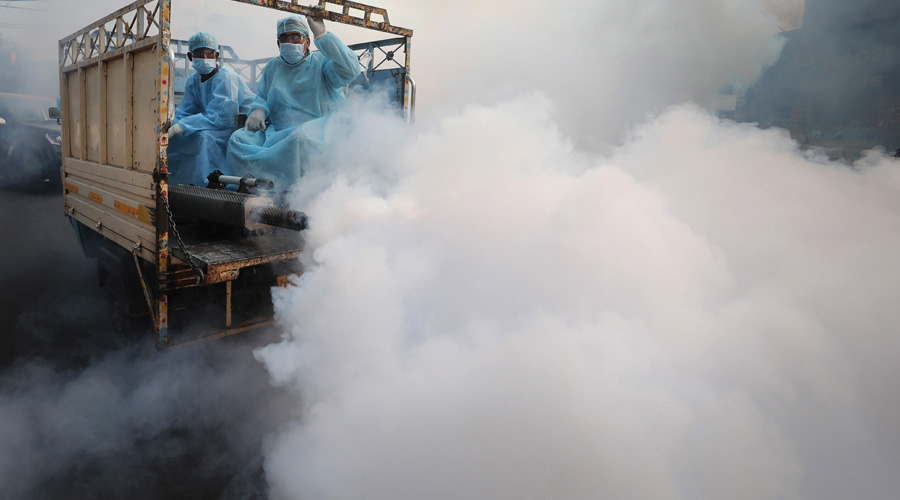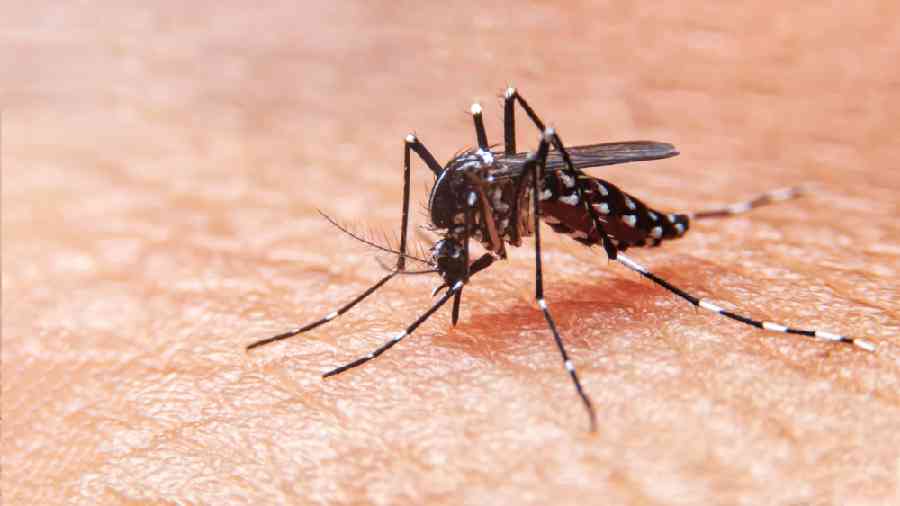The state health department has told the Kolkata Municipal Corporation and other civic bodies in the state that it was essential to tackle dengue at its source by controlling the mosquito population.
Otherwise, it would put pressure on the healthcare infrastructure, like the vector-borne disease is doing now, a health official said on Friday.
The official said they were expecting the current surge in dengue in and around Kolkata to subside and the cases to come down in about a week “because the civic authorities have started taking vector-control measures”.
“However, we are apprehending another fresh spike after the Puja, when there will be a lot of garbage accumulation again. The civic authorities have to step up the vector-control drive then,” the health official said.
The health department has called a meeting with the heads of private hospitals on dengue management, said an official of the department.
“We have circulated the dengue treatment protocol among hospitals once again,” he said.
Health department teams are visiting hospitals to find out whether the treatment protocols are being followed.
“A health department team recently visited our hospital to find out whether we are following the treatment protocol. The team members said they were satisfied,” said Sudipta Mitra, chief executive of Peerless Hospital.
Doctors said fluid management is the most important part in treating a dengue patient.
“Patients become critical mostly because of capillary leak, which leads to dengue shock if not treated adequately,” said Chadramouli Bhattacharya, infectious diseases expert.
“The main treatment for capillary leak is appropriate fluid management. The treatment protocol is clear and explains in detail about fluid management. Contrary to popular belief, it is fluid management and not platelet transfusion that ensures a good outcome,” he said.
Kolkata, along with other parts of Bengal, have witnessed a sharp increase in dengue cases in the last fortnight. On September 2, deputy mayor Atin Ghosh, who also heads the KMC’s health department, had said 564 cases had been reported in Kolkata.
On Thursday, Ghosh had said the numbers were still less than 900. Earlier, he had said over 800 cases had been reported till September 4.
Since August, six persons have died of dengue in Kolkata.
Several hospitals said they have seen a rise in admission of dengue patients. Peerless Hospital had 34 dengue patients on Friday.
The number was barely two about 15 days back, said an official. Belle Vue Clinic had 23 patients on Friday who were suffering from dengue.
“The number of dengue patients admitted has been hovering between 25 and 30 for the last fortnight,” said Pradip Tondon, CEO of Belle Vue.
According to a health department official, the hospitals would have more dengue patients if mosquito-breeding is not controlled.
“So, it is important to have intensified vector-control drive,” he said.
An official of the Kolkata Municipal Corporation’s health department said their vector-control teams were going on door-to-door visits.
The gap between two visits could be 15 or 20 days at times, said the official. Experts said that for effective dengue control, such visits should be made at least once a week.
Besides, there are rapid action teams in each borough and one for the entire city — controlled from the civic headquarters — which supplement the vector-control work done by field workers.
“We are also relaying a message on controlling mosquito-borne diseases from autorickshaws that go around a ward five days a week,” said an official of the KMC.


